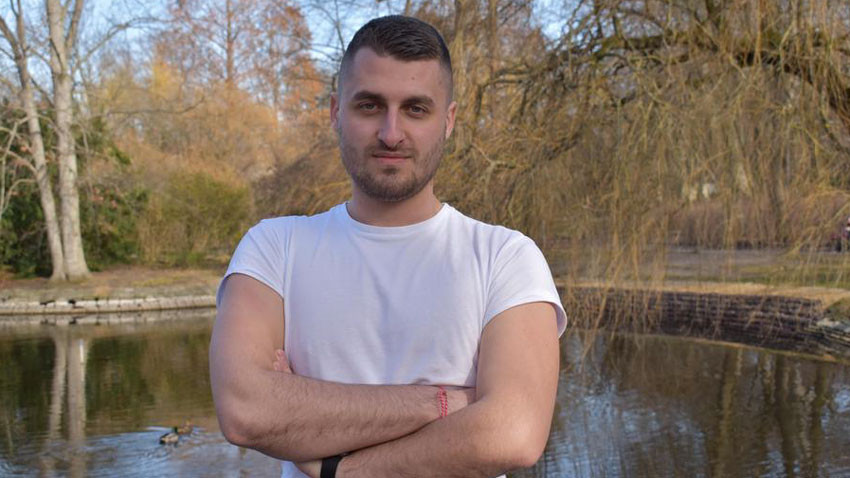
He also signaled that there was a problem with some of the voters who arrived in the section:
"Instead of a declaration stating that they will not vote anywhere else, they filled out an application to be added to the electoral roll, which has nothing to do with it. It seems that people have downloaded it from some website, which is not the one of the Central Electoral Commission. Therefore, they had to fill out a declaration again. This, of course, creates certain difficulties that may demotivate them to vote."
There are 49 registered voters in the polling station at the Bulgarian Cultural Institute in Berlin. "All others who want to exercise their right to vote fill out declarations. This slows down the process, but we are trying to compensate for it, since everyone votes by machine," said commission member Daniel Yanev in an interview with Radio Bulgaria.

As for the adequacy of the messages with which the politicians embarked on the election campaign, Yanev noted:
"The election campaign was devoid of substance. Accusations prevailed, there was little talk of what would happen in the future, and no concrete measures were proposed to solve the problems. People are tired of four parliamentary elections that have failed to produce a stable and durable government. No serious steps are seen to solve problems that we have been discussing since the protests in 2020 - corruption, lack of rule of law and others”.
He is also skeptical about the future after election day:
"I don't rule out the possibility of new elections, but whether they will be next year or in a year and a half - I don't know, but I don't think that any government created after today will be able to complete its full mandate. And the polarization we observe in society and among politicians will continue."
Written by Joan Kolev
Editing by Elena Karkalanova
The Le tour du canal tolerance cycle tour returns to the Rowing Canal in Bulgaria's second-biggest city Plovdiv. On September 27 at 2:00 pm, the "You also come" Foundation is lending a hand to people with disabilities with a movement festival. The..
The National Museum of Natural History at the Bulgarian Academy of Sciences (BAS) is inviting visitors to Researchers' Night (Night of Scientists) on 26 September. From 17:30 in the museum foyer at 1 Tsar Osvoboditel Boulevard, Professor Zlatozar Boev..
From 26 to 28 September, the historical Bulgarian capital Veliko Tarnovo will host the first-ever national festival of organic produce in the Marno Pole Park. The National Bio Fest 2025 is a large-scale exhibition of certified Bulgarian organic..
The second edition of the unique Blackthorn Festival will be held today in the village of Salash near Belogradchik, northeastern Bulgaria. The event..
A photo exhibition called “Bosilegrad Before and Now – 2” will open on October 13 at the Municipal Art Gallery in the town of Karlovo. The photo..
The Bulgarian dance group “Dilmana” based in Copenhagen will celebrate 15 years since its establishment with a celebration on October 18, the formation..

+359 2 9336 661
